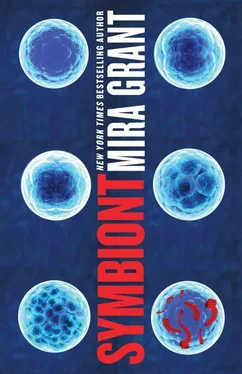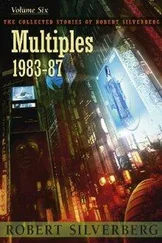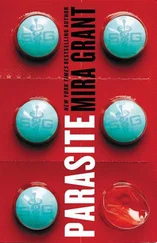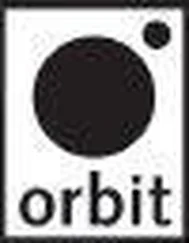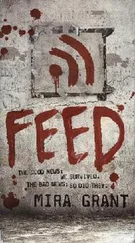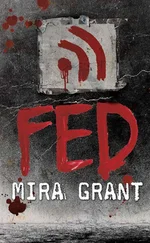“Pleasant Hill, near the community college,” said Nathan. “There’s a mall nearby, but it doesn’t seem to be the one where Sherman was holding you.”
Of course they would have checked before they came to get me. Their safety would have depended on whether I was telling the truth, and whether I’d been left in this neighborhood as a trap. I nodded mutely, suddenly exhausted, and closed my eyes as I let Nathan guide me down the pathway to the car. I didn’t want to see the sleepwalkers staggering toward us; some of them might even be the parents of the girl I’d killed inside. The world was changing. We were all of us changing with it. That didn’t make it any easier to bear.
I opened my eyes when we reached the car. Nathan opened the door, motioning for me to get into the backseat. He must have seen my discomfort, because he said, “Don’t worry. I’ll be riding with you. I just need to cover Fang and Fishy while they get back to their seats.”
That answered the question of who, exactly, the man I didn’t recognize was. I nodded and climbed in, scooting over until I was pressed against the door on the far side. Looking down the length of the backseat, I watched as Nathan raised his rifle and covered the other two men making their retreat. The pair split up when they reached the car, with Fang walking around to take the driver’s seat. Nathan got in next to me, and the sound of the door closing was the sound of coming home. I looked at him, eyes wide, unable to force myself to speak.
Nathan smiled a little. “I like your hair,” he said.
I laughed brokenly, and leaned over to put my head against his shoulder as Fang started the car and we drove away from the place where I had been abandoned, the place where I had been saved.
Nathan talked as we drove, explaining what had happened with the lab. I closed my eyes, leaned my head against his shoulder, and just listened. It was all I’d wanted to do for weeks: sit and listen to someone who would actually talk to me. He was constantly touching my hair or shoulder, like he was reassuring himself that I was real. I didn’t mind that either. It kept me from needing to be the one who moved.
The bowling alley hadn’t been Dr. Cale’s first lab. The first lab had been located in an old supermarket, and was moved when word came that the people who actually owned the property were planning to have it fumigated and then torn down. The second lab had been a closed-down Costco with the gas pumps still out back, and had been abandoned after Sherman defected. The bowling alley came third, and it had been her base of operations for longer than anything else. It was perfect in a lot of ways, isolated while still being close to civilization, and best of all, owned by a shell corporation that used it as a tax write-off and had no interest in either refurbishing or demolishing the place. It had become a lot less useful when USAMRIID started closing in.
The collapse of most of the local social norms—and the evacuations of any “nonessential” buildings, like the mall where Sherman had been keeping me, wherever that was—had created the perfect vacuum for Dr. Cale’s team. They’d smuggled themselves and all their equipment out of Clayton through a series of tricks and double blinds that Nathan didn’t explain very well, or maybe I just wasn’t quite listening anymore.
And then he said a name that actually caught my attention. I opened my eyes, tilting my head back until I could see his face, and said, “You can’t be serious.”
“But I am.” Nathan smiled a little, like he was perfectly aware of just how ridiculous he sounded. “We’ve moved the lab, and our living quarters, to the Captain Candy Chocolate Factory.”
I stared at him.
He smiled a little more. “I see you’ve heard of it. I wasn’t sure. I went there with a class field trip when I was in middle school, but you missed the whole ‘middle school’ experience.”
“Will used to leave the radio on when we were cleaning the shelter, and they advertised a lot during the afternoon,” I said. “It’s out in Vallejo, isn’t it?”
Nathan nodded. “That’s the one.”
“And it was just… empty?”
“It turns out that keeping a candy factory open isn’t a major priority when the world is ending,” said Fishy, twisting around in the front seat to look at us. “It’s a nice place. A little weird. Smells like chocolate. I hope you don’t have any allergies.”
“Just antiparasitics,” I said shyly.
“I guess that would be a problem for you,” he said, giving me a frank up-and-down look. “You don’t look like a tapeworm.”
“Surprise,” I said.
He grinned. It opened up his face like a flower, bright and honest enough that I didn’t even mind the fact that he was showing off virtually all of his teeth. The absence of malice in his expression was enough to rob them of their menace, making the expression as harmless as a grin on a dog.
Fishy was a short, stocky man with broad workman’s shoulders and a full head of riotously curly hair that was currently skimmed back into a ponytail to keep it out of his way. His eyes swam behind the lenses of his thick-framed glasses, which were seated so solidly on his nose that they looked like they would be impossible to dislodge. He was wearing a black outfit that matched Nathan’s in cut and construction, but couldn’t have looked more different on his frame.
“You seem more like a human being than Adam does,” he said. “He’s a nice guy, but he’s never really seemed like a functioning person to me.”
I blinked at him, casting an anxious glance at Nathan before returning my attention to Fishy and saying, hesitantly, “Maybe that’s because I learned how to be a human by living with humans, instead of learning how to be a human by sitting in a lab surrounded by people who never forgot that I wasn’t really one of them?”
“Maybe,” Fishy agreed. His gaze flicked to Nathan, smile fading. “We good?”
“We’re good,” Nathan agreed. Fishy withdrew back into the front seat. Nathan put an arm around my shoulder and said, “We weren’t expecting your call. Honestly, most of the people back at the lab had written you off as lost. I think that I was one of the only people who was still willing to believe that you were alive—well, me and Adam. Adam never gave up on you.”
“He wouldn’t,” I said.
“Neither would I.” Nathan tightened his arm. “Everyone’s going to be a little jumpy around you for a while. I just want you to be ready for that.”
“I can be ready for anything, as long as you let me stay with you.”
Nathan kissed the top of my head. “I’m never going to let myself be separated from you again.”
“Good,” I said, and closed my eyes.
Captain Candy’s Chocolate Factory was a Bay Area tradition, originally designed to compete with the better-known and more nationally established Jelly Belly Factory in Fairfield. The Captain didn’t specialize in jelly beans; instead, he had made his name on chocolate and chocolate confections of all kinds, from cookies to ice cream. Instead of free tours, the Captain charged fifteen dollars a head, with a promise to make it up by providing ridiculous quantities of chocolate and candy at the end—a promise that he had apparently kept, since people kept coming back. Captain Candy never became a national brand, although I didn’t know whether that was a matter of economic necessity or a matter of corporate choice. There was a lot of competition in the national chocolate arena, but in Northern California, Captain Candy was king.
The factory was built to serve three purposes at once, and it needed to serve them all well before it could be considered a success. First, to offer a candy-coated wonderland that would invoke thoughts of children’s literature and impossible dreams, available for rent at a reasonable fee. Second, to create the illusion of a factory that Willy Wonka would have been proud to own and operate, even down to the brightly colored scrubs worn by all of the employees. Third, to host the actual Captain Candy’s factory, producing hundreds of pounds of candy daily on an assembly line that looked exactly like every other candy assembly line in the world.
Читать дальше
